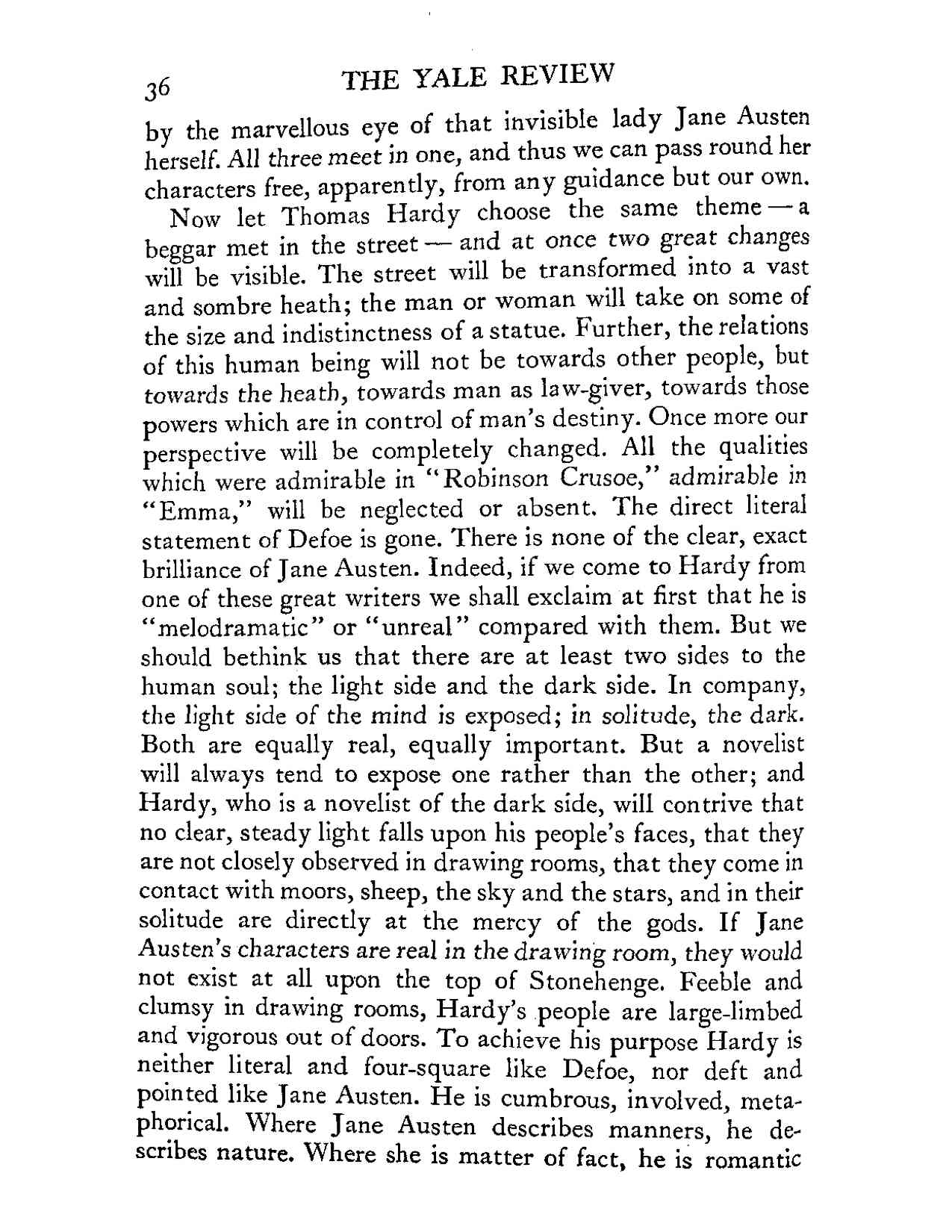
by the marvellous eye of that invisible lady Jane Austen
herself. All three meet in one, and thus we can pass round her
characters free, apparently, from any guidance but our own.
Now let Thomas Hardy choose the same theme—a
beggar met in the street—and at once two great changes
will be visible. The street will be transformed into a vast
and sombre heath; the man or woman will take on some of
the size and indistinctness of a statue. Further, the relations
of this human being will not be towards other people, but
towards the heath, towards man as law-giver, towards those
powers which are in control of man’s destiny. Once more our
perspective will be completely changed. All the qualities
which were admirable in “Robinson Crusoe,” admirable in
“Emma,” will be neglected or absent. The direct literal
statement of Defoe is gone. There is none of the clear, exact
brilliance of Jane Austen. Indeed, if we come to Hardy from
one of these great writers we shall exclaim at first that he is
“melodramatic” or “unreal” compared with them. But we
should bethink us that there are at least two sides to the
human soul; the light side and the dark side. In company,
the light side of the mind is exposed; in solitude, the dark.
Both are equally real, equally important. But a novelist
will always tend to expose one rather than the other; and
Hardy, who is a novelist of the dark side, will contrive that
no clear, steady light falls upon his people’s faces, that they
are not closely observed in drawing rooms, that they come in
contact with moors, sheep, the sky and the stars, and in their
solitude are directly at the mercy of the gods. If Jane
Austen’s characters are real in the drawing room, they would
not exist at all upon the top of Stonehenge. Feeble and
clumsy in drawing rooms, Hardy’s people are large-limbed
and vigorous out of doors. To achieve his purpose Hardy is
neither literal and four-square like Defoe, nor deft and
pointed like Jane Austen. He is cumbrous, involved, meta-
phorical. Where Jane Austen describes manners, he de-
scribes nature. Where she is matter of fact, he is romantic






